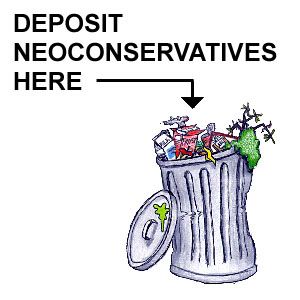"American insiders in Baghdad say the relationship between the top U.S. commander there, Gen. Raymond Odierno, and the top civilian official there, Amb. Christopher Hill, is deteriorating rapidly. Old hands say the chill between the two brings to the bad old days of Sanchez vs. Bremer, when those two unfortunates barely would speak to each other as the American position fell apart in early 2004, along with Iraq itself.
What I am hearing is that Odierno is profoundly frustrated with Hill, who despite knowing almost nothing about Iraq has decided after a short time there that it is time to stand back and stop influencing the behavior of Iraqi officials on a daily basis. In addition, I am told, the ambassador believes the war is an Iraqi problem, not something that really concerns Americans anymore, despite the presence of 125,000 American soldiers. On the other hand, the diplomats respond, the military guys believe they have good relationships with Iraqi officials, but, the dips add, how would the soldiers really know? Because unlike Hill's posse, they don't speak Arabic. Which brings to mind my favorite saying of Warren Buffett, that if you've been playing poker for half an hour and you don't know who the patsy at the table is, you're the patsy.
This is not good. Too often in Iraq over the last six years, the mission has been undercut by needless squabbling between our soldiers and diplomats. For some inexplicable reason, we've never had a structure that gives the Americans unity of command, with one person in charge of the overall national effort. (Calling Gen. Tony Zinni! Oh wait, the Obama administration screwed him early on about an Iraq post, and he isn't taking their calls anymore.) We have been tying ourselves in needless knots because correcting the bifurcated command structure somehow has been deemed too hard. Some people, like Gen. Petraeus and Amb. Ryan Crocker, were able to overcome the jerry-built command structure by being determined to achieve unity of effort, even if it meant banging together the skulls of subordinates. But it sounds to me like this top-level spirit of cooperation has evaporated and once again the smackdown is Camp Victory vs. the Green Zone -- and let places like Kirkuk and Fallujah fall apart in the meantime.
I was pretty tough on Odierno in Fiasco, but then was very impressed with how he adapted and changed for his second tour in Iraq, in 2007-2008, which I wrote about in The Gamble. By contrast, I've never understood the selection of Hill for Iraq. I met him in the Balkans and thought him a pleasant and smart guy who speaks Serbo-Croatian and Polish, but from what I can tell, he doesn't know much about the Middle East. I am told he is there because he is a Holbrooke homey. But what does Richard "AfPak" Holbrooke have to do with Iraq? I mean, doesn't his writ end several hundred miles to the east, around Herat? "









